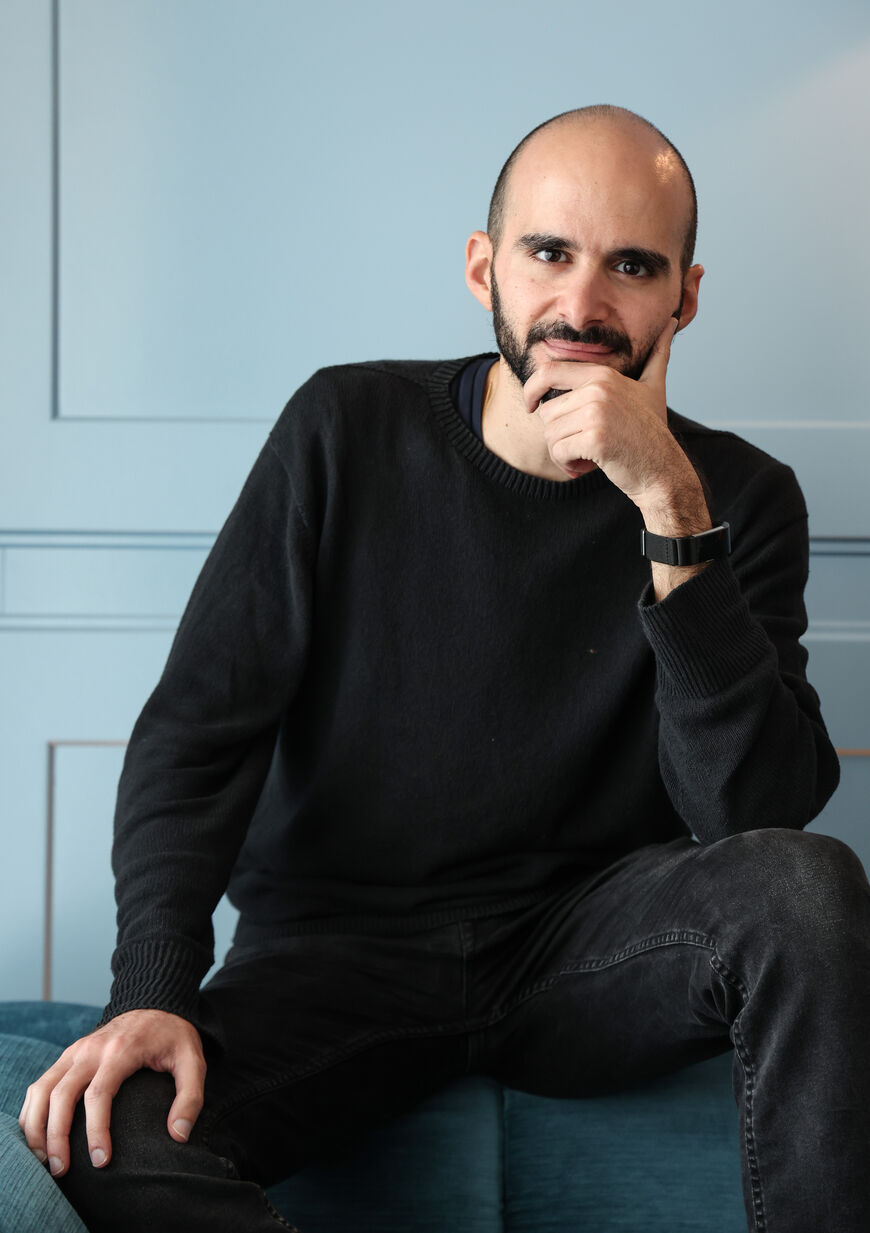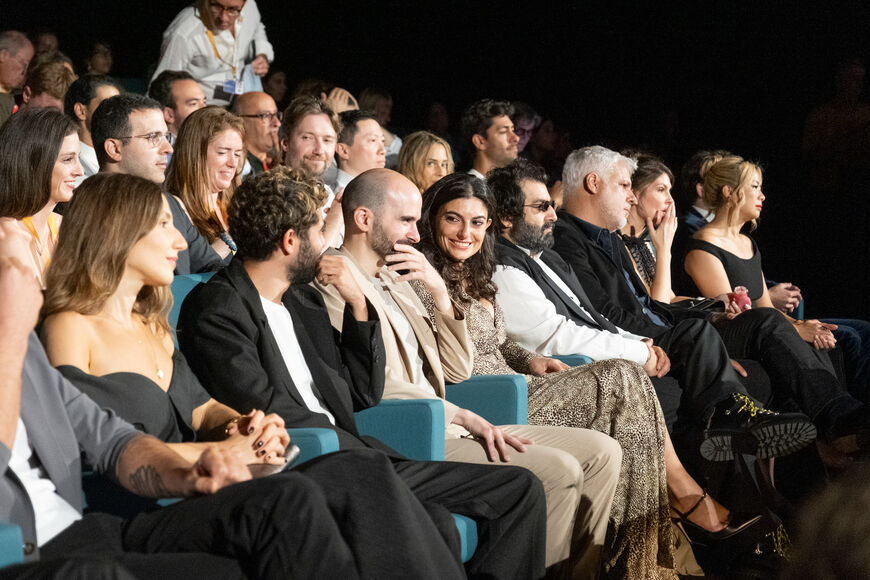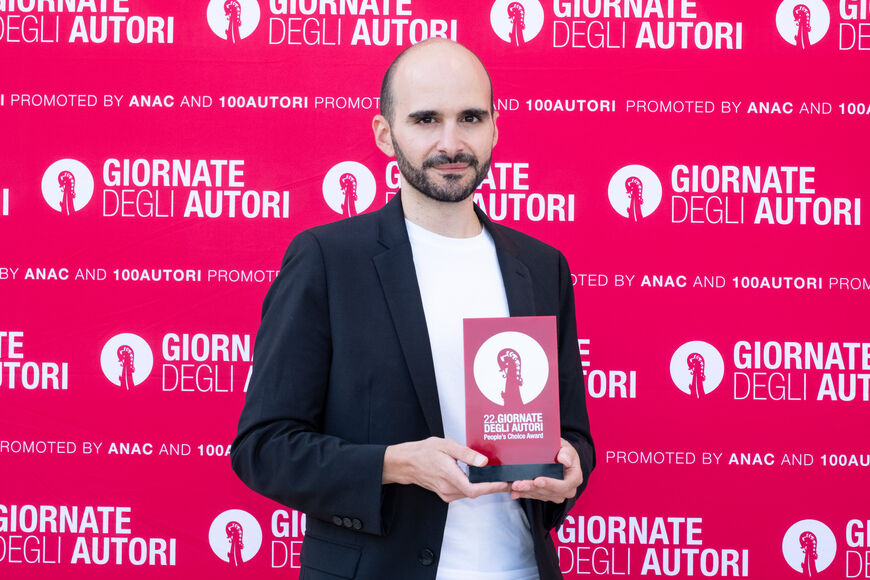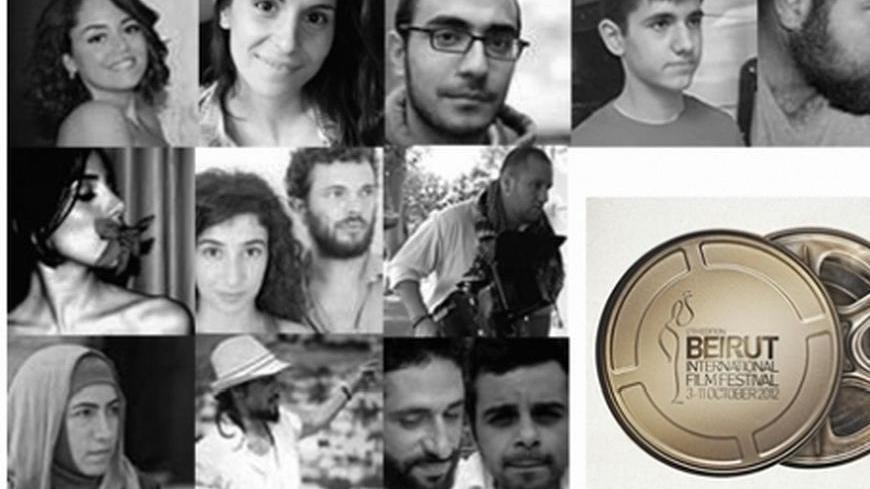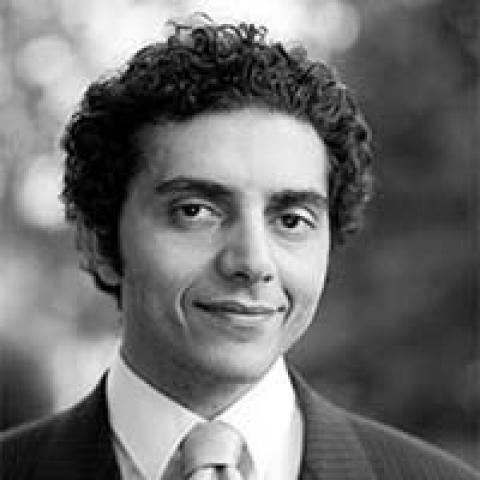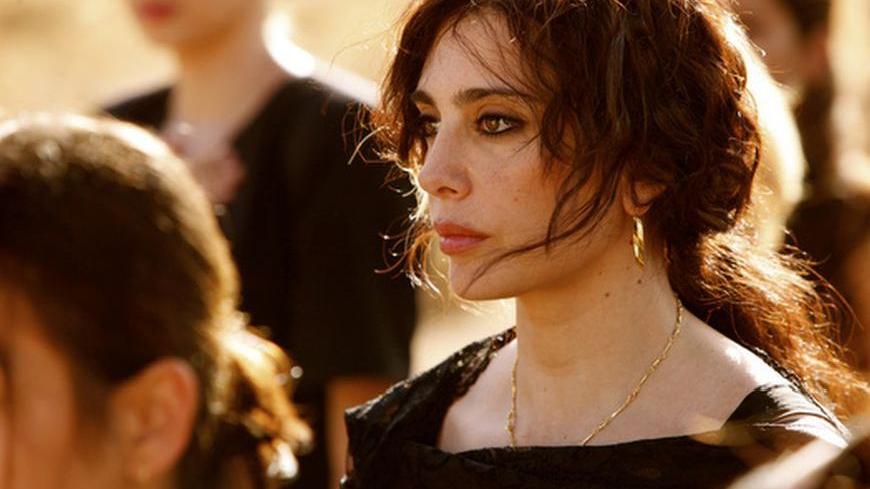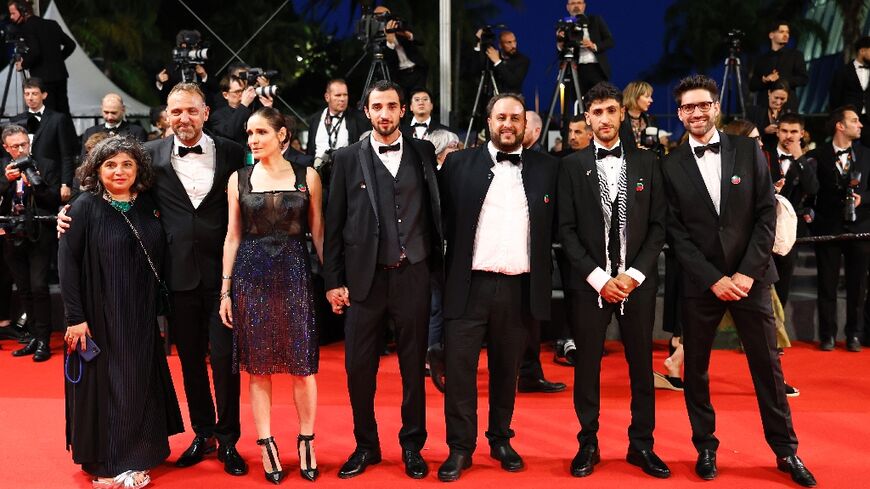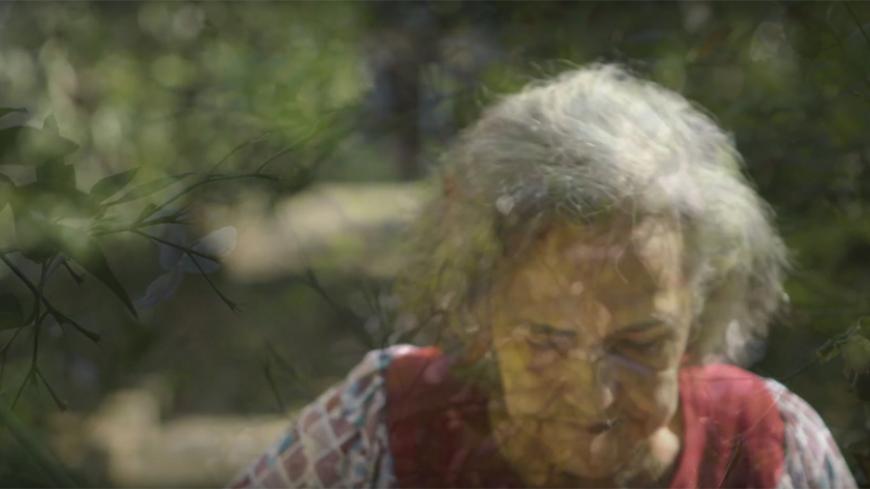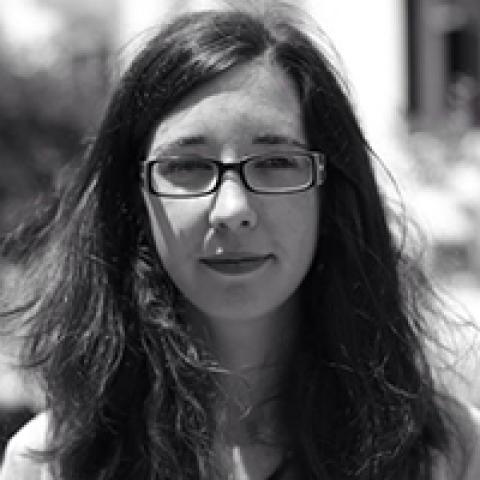Director Cyril Aris on Lebanon’s Oscar submission, trauma and cinema
Lebanese director Cyril Aris talks about "A Sad and Beautiful World" — Lebanon’s official submission to the 2026 Academy Awards and winner of the People’s Choice Award at the Venice Film Festival — and reflects on art, trauma and finding humor amid national collapse.
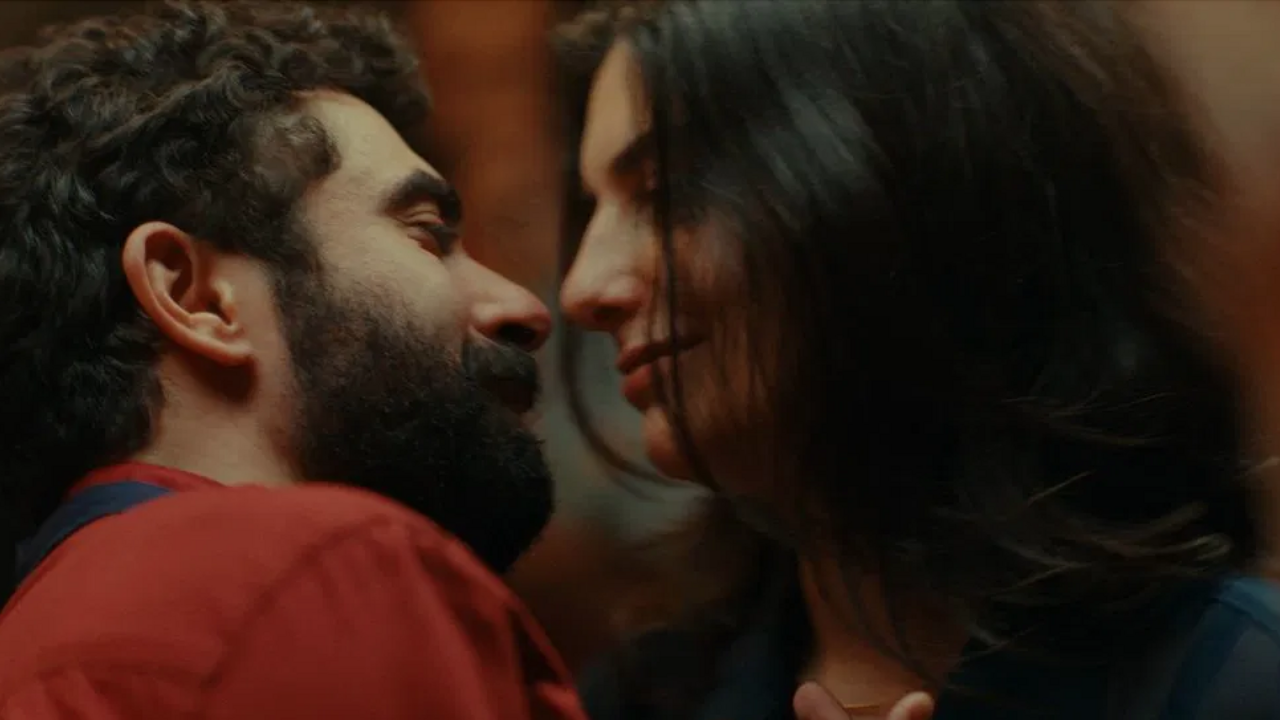
Late last month, Lebanon announced the nomination of "A Sad and Beautiful World," directed by Cyril Aris, as Lebanon’s official submission to the 2026 Academy Awards for Best International Feature Film.
The film, which won the People’s Choice Award at the Venice Film Festival earlier this year, follows lovers Yasmina and Nino, played by Mounia Akl and Hasan Akil, navigating life in a country perpetually on the brink of crisis, from the civil war of 1975-1990 to the financial collapse of 2019 and the Beirut port explosion of 2020.
Aris spoke to Al-Monitor about Lebanon’s rich but fragile cinematic tradition and how, in the absence of formal national memory, film has often taken on the role of witness.
“In Lebanon we don’t have history books. Our history books end in 1975, on the eve of the civil war,” Aris said. “I personally started learning the history of Lebanon through films … what it was like emotionally to be in the streets of Beirut or Tripoli or in the south of Lebanon during that time.” Aris hopes his latest film can continue that tradition, carrying it through to a younger generation that has grappled with the legacy of civil war, economic collapse and more.
Aris spoke with Al-Monitor just a week after his film "A Sad and Beautiful World" was chosen as Lebanon’s Oscar submission.
The conversation has been edited for clarity and length.
Al-Monitor: What do you make of your film's submission to the Academy Awards representing Lebanon?
Aris: Playing at international film festivals is a great honor, but there's always a part of you that is seeking to get local recognition, because this is a film that's about my relationship with my country and my ambivalent feelings towards my country and its society and its contemporary history.
Given that there's a part of my heart in this film, you're always weary to see how local audiences would react to it, and from the screenings we've had in Lebanon, the response has been very positive, which is very heartwarming. We're looking forward also to see how it's going to get received in the rest of the Arab world. Because, to a certain extent, yes, we are dealing with a very Lebanese story, but also it can be extrapolated easily to any of the other Arab countries.
Al-Monitor: You’ve worked in both fiction and documentary. How do you decide which stories should be told in which form?
Aris: Well, I started doing short fiction, and then I went into documentaries, but it wasn't that much of a conscious choice. It was more like the stories that were presented to me were presented to me, and they would best be told in a documentary format.
I do remember that for my first documentary, "The Swing" (2018), the story was happening in 2015, approximately, and I started writing a script about that story. But then halfway through, I thought, "What am I doing? The story is happening right there, and there’s nothing that's going to capture the real essence of it and the emotional core as well as just filming it in its raw format." That's what launched me into that first documentary.
And then I thought I'd just go back and focus on fiction. But then Lebanon happened — in 2019 and 2020, going from the popular uprising to the port explosion of Aug. 4, and the economic crisis and the financial crisis. And again, it had to be captured [in "Dancing on the Edge of a Volcano" (2023)].
This very peculiar time, I like to believe, is the lowest point ever in Lebanon's history. I surely do hope so. I wanted to capture the true essence of that by any means, and it had to be a documentary.
Al-Monitor: What inspired the story of "A Sad and Beautiful World," and how did you get there?
Aris: It's always hard to go back to the real inception, because things change so much.
I do remember that I started writing the story in late 2019. Lebanon was extremely different back then. I kept updating the script as I was going along, because the bulk of the film happens in modern times.
I do remember one day my producer, Georges Schoucair, told me, "Listen, you've shot the documentary. All the darkness is out there. The port explosion and the complete crumbling of the country and society — it's all out there. I think you got it out of your system. So now go back and write the fiction without being influenced so much by what you're feeling right now. It ended up being quite good advice.
But I would say that the source of it all is actually quite unrelated to the situation of the country itself. It was more about a universal question related to the necessity of bringing children into our world today. I think that worldwide, there's an overall pessimism and cynicism about the future of the world, whether it's related to climate change, financial burdens, conflicts, wars and so on.
Al-Monitor: Is that [bringing children into the world] the primary message that you wanted to communicate through the film? What about the film's notion of lightness, or comedy, in darkness?
Aris: I wouldn't say that's the main message. I think it's the central question from which the entire story came about.
It was me trying to answer that question through two polar opposites, two characters that are antagonistic forces of nature, that see the world quite differently. They have very different perceptions of their country and the future of their country.
Comedy is quite inherent to Lebanese identity. It's more than just forcing comedy onto the script or the characters, but it's something that comes so naturally because of how we speak and how we think and how we survive, especially in dark times. Humor and comedy become kind of a defense mechanism and a tool of survival.
Al-Monitor: You mentioned these polar opposite characters: Nino, who's more optimistic about Lebanon, and Yasmina, who's more realistic about Lebanon. Do you personally gravitate toward one of these poles in relation to Lebanon?
Aris: Very much both. I think everyone falls within that spectrum. But it's worth noting that they don't stay and fulfill their roles as these two archetypes — they switch roles throughout the script. And that is very much where we find ourselves.
One day I'll be much closer to Nino and Nino's perception of Lebanon, but some other days I tend to be closer to Yasmina. But even themselves, they kind of swap roles and they change because they influence each other, and they bring the best out of each other, but they also bring the worst out of each other.
Al-Monitor: Like we've talked about, Lebanon has been through a lot recently. Did you come up against challenges while making the film?
Aris: We shot in the late spring, early summer of 2024. It was a couple of months before the full-on war that Israel conducted against Lebanon.
So there was this constant threat of "it's going to happen anytime now," because they [Israel] kept threatening. They use rhetoric that's extremely hyperbolic and extremely apocalyptic, like, “We're going to turn Beirut into another Gaza.” There was this constant threat during that time that at any point production can be stopped.
And I do remember at some point the Iranians were sending missiles towards Israel. We saw them in our skies, and I said, “OK, I guess we're going to keep going with the production.”
The more challenging part was during editing. My entire postproduction was happening during the war, in September, October and November.
In a way, it was great for me to have something to focus on and not just watch the news all day and see all this darkness around. But at the same time, it brought the thought of, “What the hell am I doing? I’m worrying about 'should I cut here or should I cut there' when the whole country is burning and falling apart."
But at the same time, this is in line with the title of the film — the sadness and the beauty coexisting, and that's the nature of Lebanon.
Al-Monitor: Touching on that last point you made, in times of crisis, like those you described, what do you feel is the responsibility of the filmmaker? To what extent do you see your films as activism, as reportage, as art, as therapy or as some mix?
Aris: I would like to think all of the above. I think that when you release a film, whatever the audience gets out of it becomes theirs at some point.
But I do believe that cinema, especially in Lebanon, should stand witness to a certain period and a certain place. And I'm saying that because in Lebanon we don't have history books. Our history books end in 1975, on the eve of the civil war.
I personally started learning the history of Lebanon through cinema, through the documentaries and depiction films that were shot by Maroun Baghdadi, Jocelyne Saab, Borhane Alaouie.
And when I say I learned history, I don't mean it in the sense of this event happened and that event happened, but more like what it was like emotionally to be in the streets of Beirut or Tripoli or in the south of Lebanon during that time.
I would like to think that my films can be an additional contribution to that legacy that previous filmmakers have created in retransmitting the essence of the emotions that we were feeling.
Al-Monitor: Lebanon’s civil war has played a large role in its cinematic history. A lot of those movies from the late '70s through the '90s were grappling with that central civil war trauma.
You’ve said, “In Lebanon, every generation has their own trauma.” How do you see trauma shaping the younger generation in Lebanon and the art that they produce?
Aris: I think that filmmakers, at least the older generation, were kind of obsessed with the civil war because that's the only thing that they knew. They were in the midst of it and trying to make sense of it, because the information was so biased and so filtered through who was telling the information.
To this day, we can't agree who was a victim and who was a martyr and who was an oppressor and who was oppressed. It’s very much dependent on who's telling the story. Because at the end of the day, no one won and everyone lost, objectively speaking.
And I think that even though I haven't lived through the civil war, I think we're living the consequences of it.
I grew up with the consequences of it. Inexplicably, I inherited the traumas of the previous generation. And then you add on top of this our own traumas, resulting from the collapse of the banks, the three wars that I personally lived through — 1996 with Israel, 2006 and 2024 [also with Israel] — and the port explosion, all of that.
I think that creates another set of tragedies that you're also trying to make sense of.
As artists, I think that the only way we can try to make sense of that is through art and by raising questions and putting them out there, hoping that they will become part of the national conversation, which we still to this day do not have.
We [in Lebanon] have a problem of the previous generation never having really reconciled. I think our generation is a little more united. We’re not blindly divided, but we still live under the divisions that were imposed on us by our political leaders, who are basically the same ones who did the war 40 years ago and who are still now in power on their canes.
To conclude that answer, I think that art comes from great pain, and I think that's why there's so much good art coming out of Lebanon, because it's all this unprocessed pain that artists are trying to process through visuals, sound, music, dance, whichever medium.
Al-Monitor: Where do you feel that Lebanese film is today? Are you hopeful about its future?
Aris: Always hopeful. I don't know if it's a choice or if it's based on actual evidence.
I think that there's constantly a lot of great works coming out of the Arab world that are playing in international festivals and that are getting more and more distribution, whether it's in theaters or online platforms. I think there's much more awareness when it comes to getting our stories out there now.
In the specific case of Lebanon, I think that after 2020 there was a bit of a downfall, because all industries were impacted, and our industry was no exception. For a few years, we didn't have many films, if any, coming out of the Arab world.
But in the past two years, I think we've adapted to the new situation. And there are some productions that are shooting again. I know that. There were three productions happening in parallel to my film. Then in the fall, there were a bunch of productions that were stopped during the war, but they all resumed shortly after.
I think that in the coming years, you're going to hear about more and more Lebanese films coming out of the country.
Al-Monitor: Can you tell me a little bit about your future? Are you working on anything that you're excited to share with the world?
Aris: I have a few ideas. They're all pretty much at their infancy. But there’s another fiction film set in Lebanon that I'm currently thinking of and writing. And there's another one which is a bit more pan-Arab that I'm very excited about. It happens in separate Arab countries and is based on a historical figure.
But right now I'm finishing this one and promoting this one and starting to think about the next one. It becomes quite addictive. Once you've done the first one, you think, "Maybe I can do something more challenging next time."
